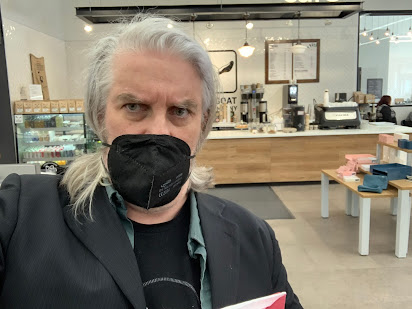archipelago, Laila Malik
Book*hug, 2023
Comparable to Ottawa poet and lawyer natalie hanna’s recent full-length debut lisan al’asfour (Winnipeg MB: ARP Books, 2022) for its diasporic exploration through a lush lyric is Laila Malik’s archipelago (Toronto ON: Book*hug, 2023), a seeming-debut that traces diasporic lineages across the layerings of multiple cultural and geographic landscapes, as well as the traumas of what was lost, destroyed and otherwise left behind. As the back cover offers: “Malik’s lyrical poems intertwine histories of exile and ecological devastation. Beginning with a coming of age in the 80s and 90s between Canada, the Arabian Gulf, East Africa, and Kashmir, they subvert conventions of lineage, instead drawing on the truths of inter-ethnic histories amidst sparse landscapes of deserts, oceans, and mountains. They question why the only certainties of ‘home’ are urgency and impossibility.” Very much structured as an expansive, book-length lyric, Malik’s archipelago traces a finger-line across an ongoing, fragmented, staggered and staccato line, one that seems to run the length and breadth of the collection. As the poem “just kids going home” includes:
in english we
spell desert with one s because it is made of hunger.
in urdu we call it
registan because it is its own republic.
in arabic they
call it sahra, even though this is an oasis, even though
ancient waters still stir below.
Hers is lyric of long lines and disruptive sweeps, difficult histories and an array of geographies that are home no longer, as the same poem opens: “we are not the first girls to walk the desert alone but we don’t know this yet.” Composed via four sections and an epilogue, she writes of war and erasure, of exile and endurance, of the oil wars and ecological destruction, and of the accumulative losses both human and cultural, as well as of the imagination. One might call this a book of uprootedness, seemingly held above ground while still tethered, somehow, to a crumbling of broken soil. As the final poem in the collection offers, just near the end: “forever incanting /// i can’t be a landthief if i live in the air // can i [.]” Or, as part of the poem “kafala” writes:
i don’t have a sponsor.
i have one
mother
one
father
two
sisters.
i have skin that
bakes quickly
hair that coils
midnight escapes
lying amber eyes
& a tongue that curls
around every wrong
alphabet.
i have a memory of
friends
faded far beyond
oceans.
i have what they
call a boss.
an englishman built
of straw & bloodshot eyes
broken capillaries
& beerbreath, hired to strip me
of a million years
of schooling in exchange for
a faceful of spit
a fistful of fils.
i have a blue
passport. but
your accent
still chokes me.
Born in Ottawa, Canada’s glorious capital city, rob mclennan currently lives in Ottawa, where he is home full-time with the two wee girls he shares with Christine McNair. The author of more than thirty trade books of poetry, fiction and non-fiction, his most recent titles include the poetry collections the book of smaller (University of Calgary Press, 2022) and World’s End, (ARP Books, 2023), and a suite of pandemic essays, essays in the face of uncertainties (Mansfield Press, 2022). He’s been spending the past six-plus months working on a book-length essay on reviewing, literature and community, “Lecture for an Empty Room,” sections of which have been slowly appearing via his remarkable substack. He spent the 2007-8 academic year in Edmonton as writer-in-residence at the University of Alberta, and regularly posts reviews, essays, interviews and other notices at robmclennan.blogspot.com



